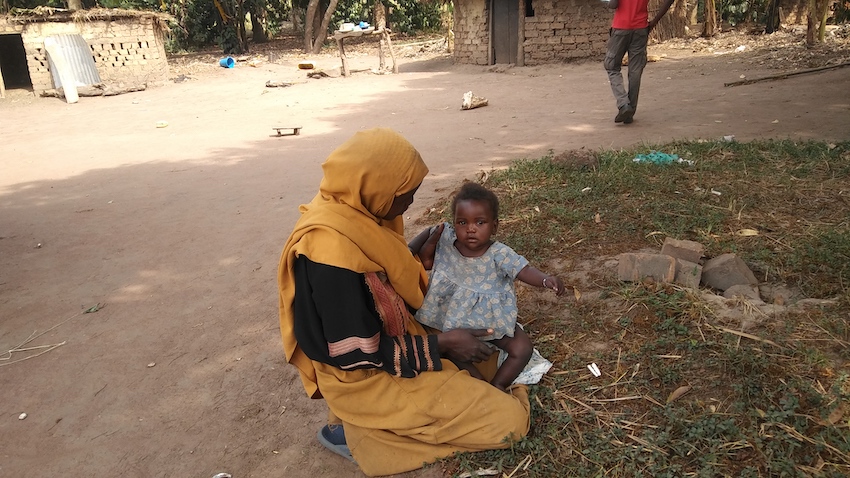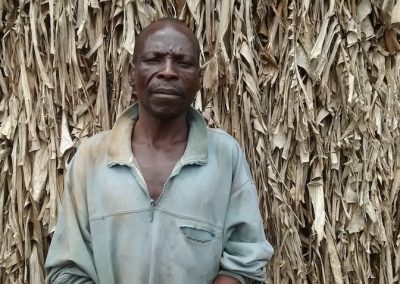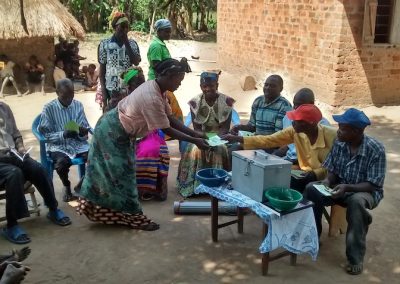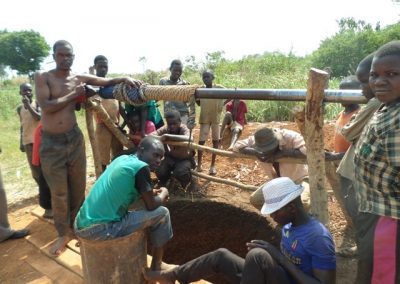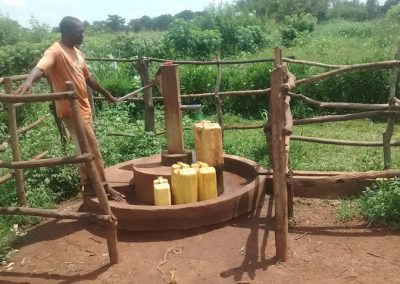PROJECT #92
Project #92 | Clean Water in Uganda
Our partnership with The Water Trust
Improved access to clean water, latrines, and hygiene education has been proven to dramatically improve public health, reducing preventable deaths and increasing lifespan and productivity across water stressed areas. The UN estimates that each $1 invested in reducing water poverty has a nine-fold rate of return in improved productivity and reduced healthcare costs. Prior to this project, the communities’ primary water sources included unprotected water points far from their households. Unsanitary practices, such as open defecation, were commonly practiced.
The Water Trust has been working in the Masindi and Kiryandongo districts of Uganda since 2008. This project furthered their village partnerships program which helped their partner villages build four wells, and conducted regular training on hygiene and sanitation, from which 948 people directly benefited. Additionally, a local water committee was trained to take full ownership of the wells to ensure their long-term sustainability. The water points built are still functioning and providing clean water. These communities have also experienced a 30% decrease in reported diarrheal disease, which is a major contributor to preventable death and malnutrition, while also witnessing a reduction in intestinal worms from 27% to 12%. Beyond health outcomes, the construction of a nearby, clean source of water saves a typical family a full month of travel time a year. Women and children no longer need to travel far distances to collect water, reducing their exposure to risks to their health and safety and leading to more time for study, work, and leisure.
Our collective impact
Latrines or Toilets Built
Water Points Built
People Impacted
Meet Hanifa
In the village of Kigulya Kyetegya, many things have changed since the villagers worked together to build a 24-foot deep well closer to their homes. Previously, Hanifa and her family and neighbors took water for all their household needs from a dirty pond, which they shared with animals. Through this project, Hanifa and her family learned about and practice better hygiene. With the water point nearby, it only takes Hanifa 15-20 minutes to collect clean water into a 20-liter jerry can, saving her about 2-3 hours every day. This means she can now focus on working around the homestead and allocate water for drinking, washing, and cleaning. The clean water also means that her children are healthier and safer as they no longer have to take frequent trips into a mosquito-infested forest to collect wood for boiling to sterilize water. They also have been bathing in clean water, which has significantly decreased their skin rashes and they no longer suffer from diarrhea as a result of drinking dirty water. Hanifa credits her family’s improved health to trainings on good hygiene practices, and access to clean water.
Thank you for making this possible!
Our movement is grassroots, to us that not only means the work on the ground is led by local leaders with the support of the community, but it also means that we raise the funds for our projects through everyday donors just like you. In addition to all the donors that gave $25, $100, or $250 and the campaigners that ran a race or donated their birthday to raise funds, we also want to thank our generous business, school, and faith sponsors who believed in our work and joined the movement.
If you want to support future projects like this you can make a donation to our clean water fund.
LEARN
Leadership
Transparency
Read the Latest
Contact Us
COLLABORATE
Faith Groups
Schools
Businesses
Get Involved
One Day’s Wages exists to alleviate extreme poverty by investing in, amplifying, and coming alongside locally led organizations in underserved communities.
©2025 One Day's Wages is a registered 501(c)(3) organization | Tax ID #26-2566653 | Privacy policy | Terms of use
P.O. BOX 17575 Seattle, WA 98127 | Contact us

